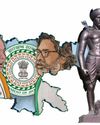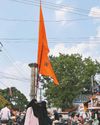The apex court’s verdict on Section 377 is poised to bring tectonic shifts in Indian society, but subtly

THIS fortnight-long pause must feel like an endless period of waiting for India’s lesbian, gay, bisexual, transgender and queer (LGBTQ) community— nothing short of a cusp moment in their history. The Supreme Court has just finished hearing a batch of petitions asking for Section 377 of the Indian Penal Code (IPC) to be “read down”. LGBTQ groups are waiting to find out if the court will hold that consensual same-sex intercourse is legal. If this happens, LGBTQs will have won the right to seek legal recourse against everyday oppression and form associations to raise grievances. As Section 377 makes all homosexual acts illegal, these rights are at present denied to LGBTQ persons.
The line of questioning adopted by the judges while hearing the case has left LGBTQ activists sanguine. For instance, Justice Rohinton Nariman noted that the court will “not wait for majoritarian governments to enact or delete” laws that violate fundamental rights, while Justice D.Y. Chandrachud said that if same-sex intercourse is decriminalised under Section 377 on constitutional grounds, many other civil rights would necessarily flow to LGBTQ persons.
As a result, there are cautious whispers within (and outside) LGBTQ groups that the future may bring more than just the right to consensual sexual activity of one’s choice within bedrooms. Though the Supreme Court had in 2013 struck down the 2009 Delhi High Court’s “reading down” of Section 377, its landmark privacy judgment of August 2017, inter alia, opined against Section 377. This May, the apex court also put its stamp of approval on live-in relationships. A convergence of tangentially related events seems to have created an enabling atmosphere of legal thinking that favours a certain liberalism, but will that extend to conferring on LGBTQs the same legal rights as live-in heterosexual couples?
هذه القصة مأخوذة من طبعة July 30, 2018 من Outlook.
ابدأ النسخة التجريبية المجانية من Magzter GOLD لمدة 7 أيام للوصول إلى آلاف القصص المتميزة المنسقة وأكثر من 9,000 مجلة وصحيفة.
بالفعل مشترك ? تسجيل الدخول
هذه القصة مأخوذة من طبعة July 30, 2018 من Outlook.
ابدأ النسخة التجريبية المجانية من Magzter GOLD لمدة 7 أيام للوصول إلى آلاف القصص المتميزة المنسقة وأكثر من 9,000 مجلة وصحيفة.
بالفعل مشترك? تسجيل الدخول

Trump's White House 'Waapsi'
Donald Trump's victory in the US presidential election may very well mean an end to democracy in the near future

IMT Ghaziabad hosted its Annual Convocation Ceremony for the Class of 2024
Shri Suresh Narayanan, Chairman Managing Director of Nestlé India Limited, congratulated and motivated graduates at IMT Ghaziabad's Convocation 2024

Identity and 'Infiltrators'
The Jharkhand Assembly election has emerged as a high-stakes political contest, with the battle for power intensifying between key players in the state.

Beyond Deadlines
Bibek Debroy could engage with even those who were not aligned with his politics or economics

Portraying Absence
Exhibits at a group art show in Kolkata examine existence in the absence

Of Rivers, Jungles and Mountains
In Adivasi poetry, everything breathes, everything is alive and nothing is inferior to humans

Hemant Versus Himanta
Himanta Biswa Sarma brings his hate bandwagon to Jharkhand to rattle Hemant Soren’s tribal identity politics

A Smouldering Wasteland
As Jharkhand goes to the polls, people living in and around Jharia coalfield have just one request for the administration—a life free from smoke, fear and danger for their children

Search for a Narrative
By demanding a separate Sarna Code for the tribals, Hemant Soren has offered the larger issue of tribal identity before the voters

The Historic Bonhomie
While the BJP Is trying to invoke the trope of Bangladeshi infiltrators”, the ground reality paints a different picture pertaining to the historical significance of Muslim-Adivasi camaraderie